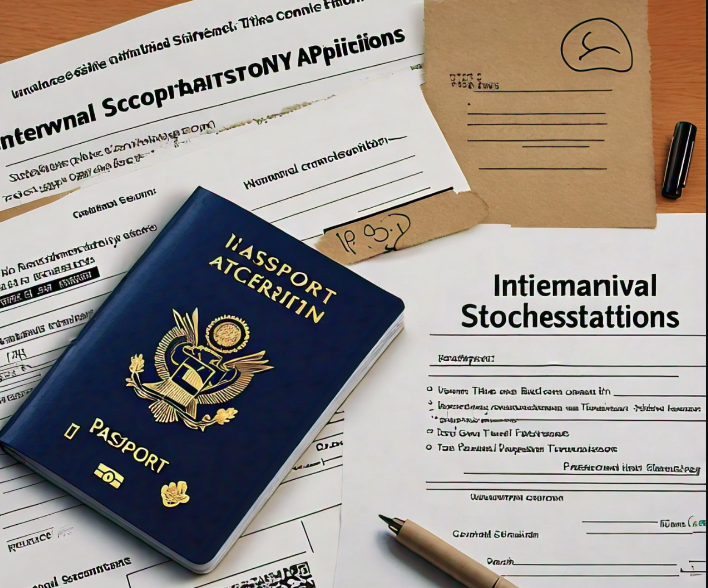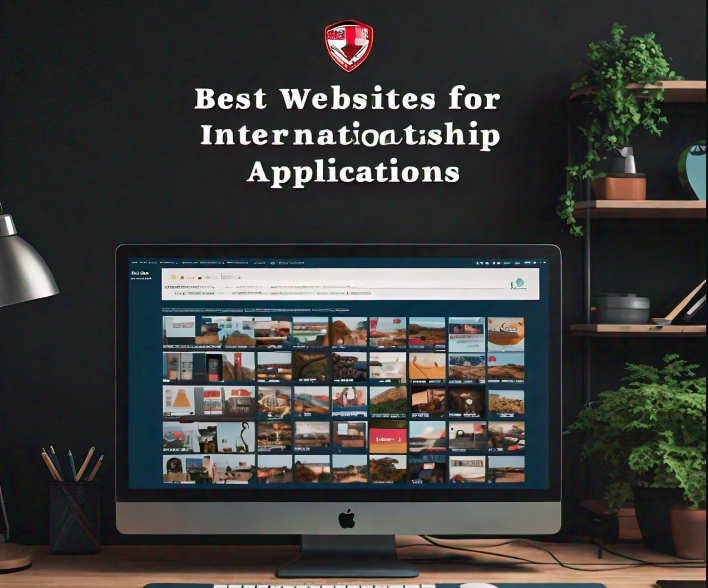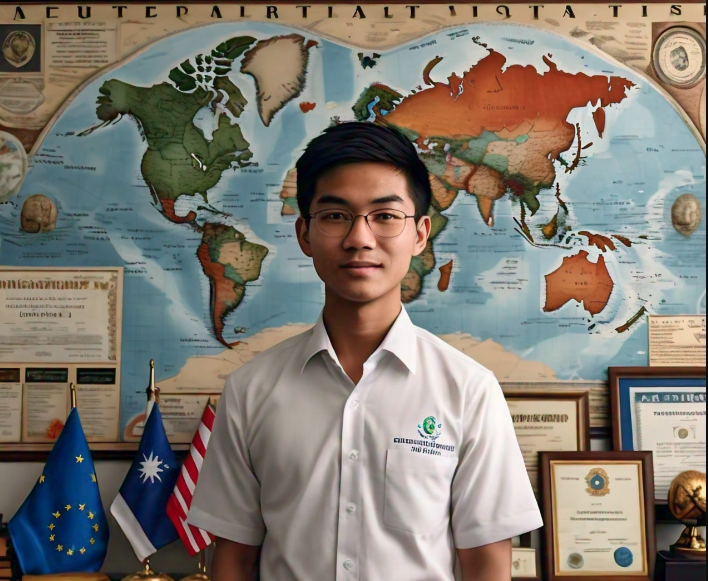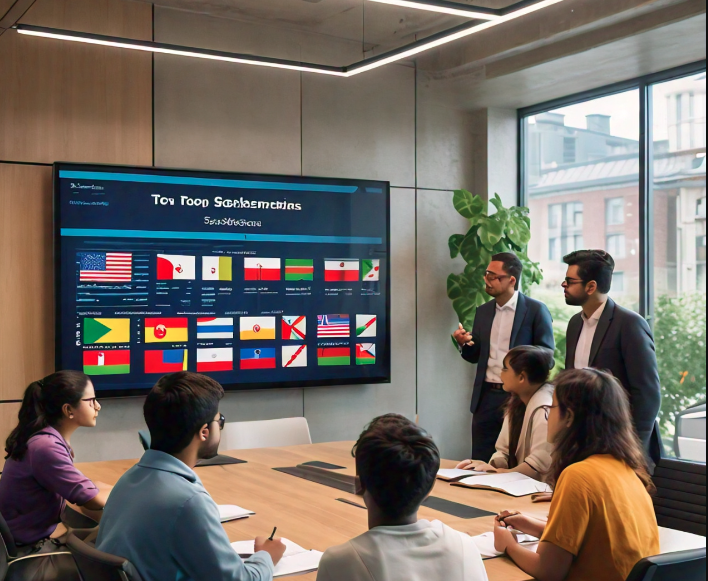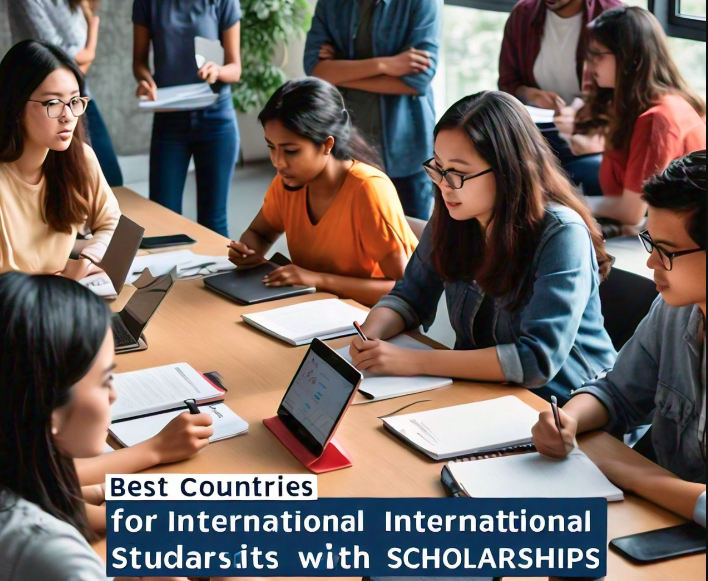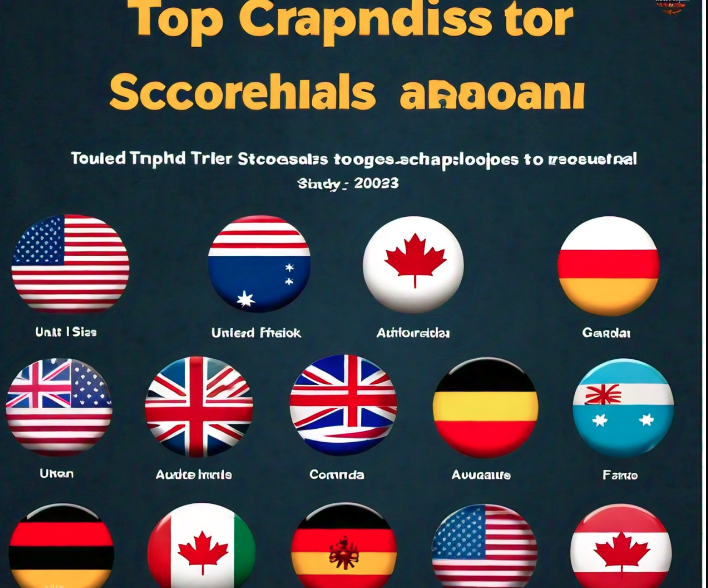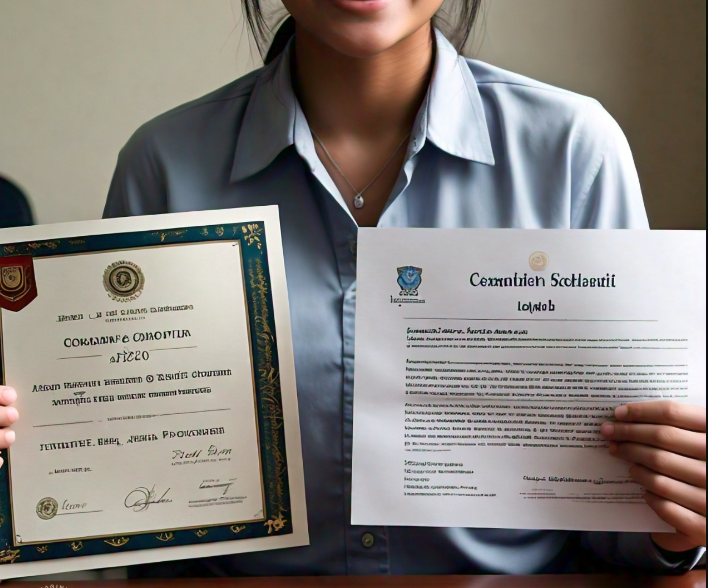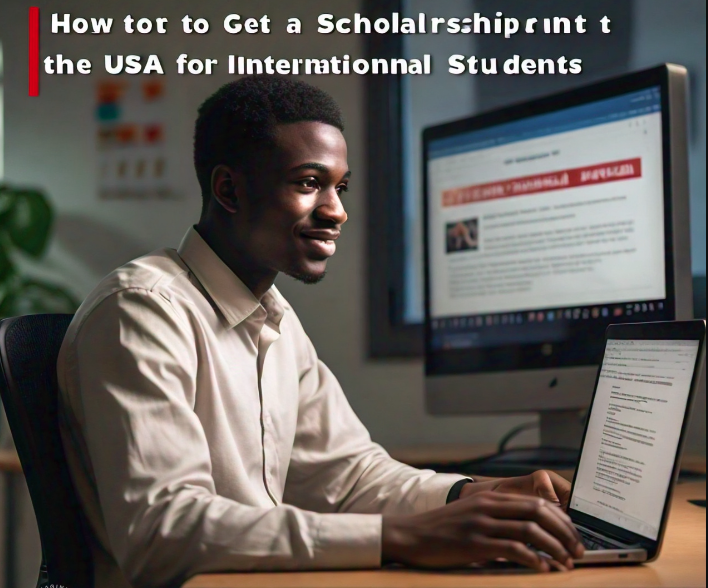Tips for Winning International Scholarships From Any Country
Introduction
Applying for international scholarships can be an exciting yet overwhelming experience. With so many opportunities available, how do you stand out from the crowd? Whether you dream of studying in Europe, Asia, or anywhere in between, having a winning application is key. In this guide, we’ll share essential tips to help you navigate the scholarship landscape and increase your chances of success.
Researching Scholarship Opportunities
Identify Your Goals
Before diving into applications, take a moment to reflect on your goals. What do you want to study? Are you passionate about environmental science, business, or perhaps arts? Having a clear understanding of your academic and career objectives will help you narrow down your scholarship options. It’s like setting a GPS for your educational journey—knowing your destination makes it easier to find the best routes!
How to Use Social Media for Scholarship Opportunities | ||
Personal Statement Tips for International Scholarships | ||
Explore Different Types of Scholarships
Scholarships come in various forms: government-funded, university-specific, or private organization offerings. Each type has its unique set of requirements and benefits. Government scholarships often aim to foster international relations, while universities might provide funding to attract top-tier talent. Researching these different types will give you a broader understanding of what’s available.
Use Online Resources
The internet is a treasure trove of information when it comes to finding scholarships. Websites like Scholarship.com, Fastweb, and the official university websites often have databases of available scholarships. Utilize these resources to compile a list of opportunities that align with your goals. Think of it as shopping for scholarships—browsing through options to find the perfect fit!
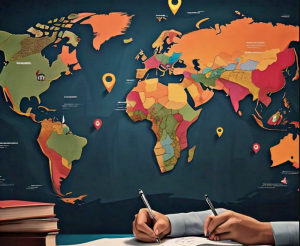
Understanding Eligibility Requirements
Academic Qualifications
Once you’ve identified potential scholarships, the next step is to review the eligibility requirements. Most scholarships will specify a minimum GPA or certain courses you need to have completed. Make sure your academic qualifications align with these requirements; it’s essential to set a strong foundation for your application.
Language Proficiency
If you’re applying to a country where English (or another language) is the primary mode of instruction, you may need to demonstrate your language proficiency. Tests like IELTS or TOEFL are commonly required. Make sure to prepare for these exams well in advance to meet the necessary scores.
Other Criteria
Don’t forget to look for additional eligibility criteria, which might include community service, leadership experience, or specific extracurricular activities. These factors can enhance your application and set you apart from other candidates. Think of these as the icing on the cake—nice to have and can make a delicious difference!
How to Find Scholarships for Studying Abroad | ||
Documents Needed for International Scholarship Applications |
Crafting a Compelling Application
Writing a Strong Personal Statement
Your personal statement is your chance to tell your story. A well-structured statement typically includes an introduction, body, and conclusion. Start with a hook that grabs attention, delve into your journey, and finish with a powerful closing that reiterates your ambitions. This is your moment to shine!
Highlighting Your Achievements
Be sure to showcase your academic achievements, extracurricular activities, and volunteer experiences. Provide specific examples of how these experiences have shaped you and prepared you for your field of study. Remember, it’s not just about what you’ve done; it’s about what you’ve learned and how it can benefit your future studies.
Tailoring Your Application
Every scholarship has its unique goals and values. Tailoring your application to reflect these aspects can significantly boost your chances. If a scholarship emphasizes community service, discuss your involvement in volunteer projects. If it’s focused on innovation, highlight your creative projects. It’s like wearing the right outfit for an occasion—making sure you fit in and stand out at the same time!
Gathering Necessary Documentation
Academic Transcripts
Your academic transcript is a crucial component of your application. Ensure you request this document from your institution early on. Present it neatly and ensure all relevant information is included. A well-organized transcript speaks volumes about your attention to detail!
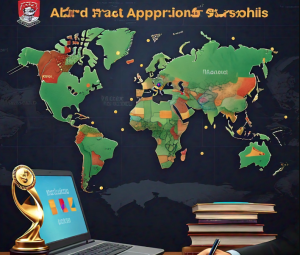
Letters of Recommendation
Strong recommendation letters can make a significant impact. Choose recommenders who know you well—professors, employers, or mentors—and provide them with specific details about the scholarship and your accomplishments. This way, they can write a more personalized and compelling letter on your behalf.
CV or Resume
Including a CV or resume can provide a comprehensive overview of your academic and extracurricular accomplishments. Keep it concise and focus on relevant experiences. Think of it as your professional highlight reel—showcasing the best of what you bring to the table.
Proofreading and Finalizing Your Application
Importance of Editing
Once you’ve written your application, take the time to proofread and edit it thoroughly. Check for spelling and grammatical errors, and ensure clarity in your writing. A polished application reflects your professionalism and dedication.
How to Write a Scholarship Application For Any Country | ||
Step-by-Step Guide to Applying for International Scholarships |
Getting Feedback
Before submitting, seek feedback from trusted friends, family, or mentors. They can provide valuable insights and point out areas that may need improvement. Fresh eyes often catch what you might have missed!
Submitting Your Application
Understanding Submission Guidelines
Each scholarship will have specific submission guidelines—some might require online submissions, while others may need a physical copy. Follow these guidelines carefully to avoid any issues. Think of it like following a recipe; if you miss a step, the outcome might not be what you hoped for!
Keeping Track of Deadlines
Deadlines can sneak up on you, so it’s crucial to stay organized. Use calendars or apps to manage your time effectively. Setting reminders for key dates can save you from last-minute panic and ensure you submit your applications on time.

Preparing for Interviews
Anticipating Common Questions
If you’re shortlisted for a scholarship, you may need to attend an interview. Prepare for common questions, such as “Why do you deserve this scholarship?” and “What are your career goals?” Practicing your responses can help you feel more confident during the actual interview.
Dressing for Success
First impressions are vital, especially in interviews. Dress appropriately and present yourself well. Your appearance should reflect your seriousness about the opportunity. It’s like putting your best foot forward before you even say a word!
Following Up
Thank You Notes
After the interview, consider sending a thank-you note to express your gratitude. This small gesture can leave a lasting impression and shows that you value the opportunity.
Staying Engaged
Maintain contact with scholarship providers or institutions. This engagement can open doors for future opportunities and keep you informed about additional funding options. Networking is often the key to success!
Conclusion
Winning an international scholarship is a fantastic opportunity that can change your life. By conducting thorough research, crafting a compelling application, and preparing diligently, you can significantly enhance your chances of success. Remember, each application is a chance to tell your story—so make it count!
FAQs
- What are common mistakes to avoid in scholarship applications?
- Common mistakes include missing deadlines, not following instructions, and submitting a generic application.
- Can I apply for multiple scholarships at the same time?
- Absolutely! Applying for multiple scholarships can increase your chances of securing funding.
- How important are recommendation letters?
- Very important! Strong recommendation letters can provide valuable insights into your character and abilities.
- What if I don’t receive any scholarships?
- Don’t get discouraged! Consider applying for other opportunities or gaining experience through internships.
- Are there scholarships specifically for certain fields of study?
- Yes, many scholarships target specific fields, so research those that align with your interests.
How to Use Social Media for Scholarship Opportunities | ||
Personal Statement Tips for International Scholarships | ||
How to Secure Letters of Recommendation for Scholarships | ||
International Scholarship Application Deadlines | ||
How to Find Scholarships for Studying Abroad | ||
Documents Needed for International Scholarship Applications | ||
Best Websites for International Scholarship Applications | ||
Tips for Winning International Scholarships From Any Country | ||
How to Write a Scholarship Application For Any Country | ||
Step-by-Step Guide to Applying for International Scholarships | ||
Top 10 Countries for Scholarships | ||
Study Abroad Scholarship Programs in Australia | ||
Best Countries for Scholarships in 2024-2025 | ||
Countries Offering Fully Funded Scholarships | ||
Best Countries for International Students with Scholarships | ||
Scholarships for International Students | ||
Top Countries for Scholarships to Study Abroad | ||
How to Apply for Study Abroad With Free Scholarships | ||
Get free Scholarships for Master’s Programs Abroad | ||
How to get scholarship in USA for international students |




